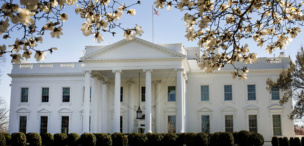The Alabama delegation has a clear message for those celebrating last week’s decision to keep US Space Command in Colorado: don’t pop the champagne cork just yet.
Next chapter: For some lawmakers on Capitol Hill, the Biden administration’s decision to reject DoD’s original decision to move the command to Huntsville, AL marks the loss of a battle, rather than the loss of the war. In the wake of the decision, Alabama lawmakers promised to keep fighting the two-plus year battle for the command (plus the 1,400 jobs and $1B in economic impact).
“It is clear the Biden administration cares more about advancing their far-left agenda than the security of our nation,” Rep. Jerry Carl (R-AL) tweeted. “We will not give up this fight because Space Command belongs in Huntsville.”
Rep. Mike Rogers (R-AL), who chairs the House Armed Services Committee, is continuing his investigation into the decision-making behind the basing decision, including whether politics played a role in placing the command in a blue state, while rejecting the original red state pick. In an Aug. 3 letter, Rogers asked Air Force Secretary Frank Kendall and US Space Command head Gen. James Dickinson for transcripts and other documents related to the HQ decision and how to best meet the national security space mission.
The plan: Rogers wrote that this is his fifth request for the documents, and that he is sick of being ignored. If the DoD officials don’t respond to his satisfaction by tomorrow, Rogers threatened to subpoena both the documents and the officials’ testimony before Congress.
“Your refusal to abide by the committee’s repeated requests for responsive documents and transcribed interviews can only be considered obfuscation and purposeful delay, highlighted by the fact that the basing decision was decided while the committee’s requests are outstanding,” Rogers wrote. “It now appears you have something to hide, otherwise a forthright response to the Committee’s patient and numerous requests would have already come.”
Moving on: The military is proceeding as if its final decision is just that. A Pentagon spokesman said the decision was made to ensure “peak readiness for the space domain,” and that the command is expected to achieve full operational capability this month—a milestone that proves Colorado is the right decision, advocates of the Centennial State argue.
“Colorado Springs is the best place for Space Command because it’s already at work here,” Sen. John Hickenlooper (D-CO) tweeted Sunday. “With the news that it’ll reach full operational capability in August, there’s no doubt our push to keep it here was the right one.”
It’s unclear what recourse the Alabama delegation has, or how they can protest the final decision.
The NDAA includes language that limits the funding for Space Command construction and Air Force secretary travel until the Defense Department reaches a final decision, which has likely become moot. It’s possible the feud could seep into consideration of the annual bill, which will be in conference when lawmakers get back to DC in September, especially because the Alabama delegation has such a powerful advocate in Rogers, but it’s tough to imagine what that might look like.




